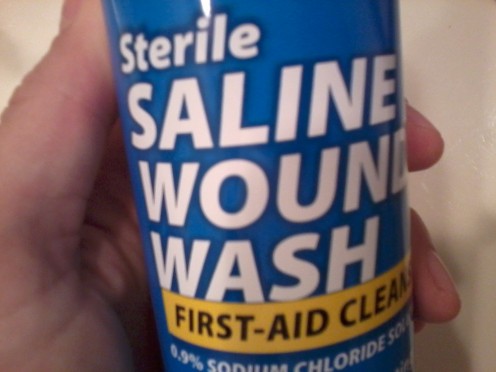- Home
- Medical news & Guidelines
- Anesthesiology
- Cardiology and CTVS
- Critical Care
- Dentistry
- Dermatology
- Diabetes and Endocrinology
- ENT
- Gastroenterology
- Medicine
- Nephrology
- Neurology
- Obstretics-Gynaecology
- Oncology
- Ophthalmology
- Orthopaedics
- Pediatrics-Neonatology
- Psychiatry
- Pulmonology
- Radiology
- Surgery
- Urology
- Laboratory Medicine
- Diet
- Nursing
- Paramedical
- Physiotherapy
- Health news
- Fact Check
- Bone Health Fact Check
- Brain Health Fact Check
- Cancer Related Fact Check
- Child Care Fact Check
- Dental and oral health fact check
- Diabetes and metabolic health fact check
- Diet and Nutrition Fact Check
- Eye and ENT Care Fact Check
- Fitness fact check
- Gut health fact check
- Heart health fact check
- Kidney health fact check
- Medical education fact check
- Men's health fact check
- Respiratory fact check
- Skin and hair care fact check
- Vaccine and Immunization fact check
- Women's health fact check
- AYUSH
- State News
- Andaman and Nicobar Islands
- Andhra Pradesh
- Arunachal Pradesh
- Assam
- Bihar
- Chandigarh
- Chattisgarh
- Dadra and Nagar Haveli
- Daman and Diu
- Delhi
- Goa
- Gujarat
- Haryana
- Himachal Pradesh
- Jammu & Kashmir
- Jharkhand
- Karnataka
- Kerala
- Ladakh
- Lakshadweep
- Madhya Pradesh
- Maharashtra
- Manipur
- Meghalaya
- Mizoram
- Nagaland
- Odisha
- Puducherry
- Punjab
- Rajasthan
- Sikkim
- Tamil Nadu
- Telangana
- Tripura
- Uttar Pradesh
- Uttrakhand
- West Bengal
- Medical Education
- Industry
Saline water better than soap and water for cleaning wounds- Study

Toronto : The standard practice of cleaning wounds with soap and water before surgery is actually less effective than just using saline water, according to a new study conducted in five countries including India.
The findings could lead to significant cost savings, particularly in developing countries where open fractures are particularly common, researchers including one of Indian-origin said. As part of the study by McMaster University in Canada, 2,400 people with open arm or leg fractures had their wounds cleaned with either soap and water, or a saline water solution, and one of three different levels of water pressure.
Patients were monitored to see who would need to have an additional operation within 12 months because of infection or problems with wound healing. The researchers found that very low water pressure was an acceptable, low-cost alternative for washing out open fractures, and that the reoperation rate was higher in the group that used soap.
“There has been a lot of controversy about the best way to clean the dirt and debris from serious wounds with bone breaks,” said Mohit Bhandari, principal investigator and a professor of surgery at McMaster University.
“All wounds need to be cleaned out — a process known as debridement — but evidence shows that cleaning wounds with soap was not better than just water, which was unexpected,” Bhandari said.
“These findings may have important implications for the care of patients with open fractures worldwide since developing countries deal with a disproportionate number of cases,” said Edward Harvey from McMaster University.
“Most of the time we were using soap and water with a high pressure delivery system to clean the wound, but now we don’t, and that makes the best practice much cheaper,” he said.
The study involved patients across 41 sites in the US, Canada, Australia, Norway and India. The majority of patients were men in their 40s with a lower extremity fracture, and the most common reason for the injury was a motor vehicle accident. The researchers said that their findings may be particularly relevant for low and middle income countries where 90 per cent of road traffic fatalities, and probably a similar proportion of open fractures occur.
The findings could lead to significant cost savings, particularly in developing countries where open fractures are particularly common, researchers including one of Indian-origin said. As part of the study by McMaster University in Canada, 2,400 people with open arm or leg fractures had their wounds cleaned with either soap and water, or a saline water solution, and one of three different levels of water pressure.
Patients were monitored to see who would need to have an additional operation within 12 months because of infection or problems with wound healing. The researchers found that very low water pressure was an acceptable, low-cost alternative for washing out open fractures, and that the reoperation rate was higher in the group that used soap.
“There has been a lot of controversy about the best way to clean the dirt and debris from serious wounds with bone breaks,” said Mohit Bhandari, principal investigator and a professor of surgery at McMaster University.
“All wounds need to be cleaned out — a process known as debridement — but evidence shows that cleaning wounds with soap was not better than just water, which was unexpected,” Bhandari said.
“These findings may have important implications for the care of patients with open fractures worldwide since developing countries deal with a disproportionate number of cases,” said Edward Harvey from McMaster University.
“Most of the time we were using soap and water with a high pressure delivery system to clean the wound, but now we don’t, and that makes the best practice much cheaper,” he said.
The study involved patients across 41 sites in the US, Canada, Australia, Norway and India. The majority of patients were men in their 40s with a lower extremity fracture, and the most common reason for the injury was a motor vehicle accident. The researchers said that their findings may be particularly relevant for low and middle income countries where 90 per cent of road traffic fatalities, and probably a similar proportion of open fractures occur.
Next Story


